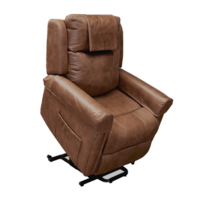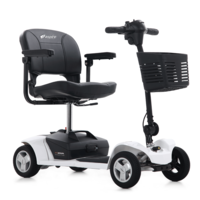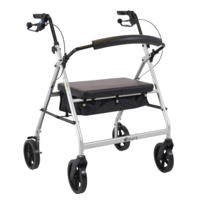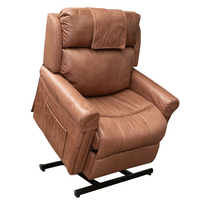What To Consider When Caring for A Bariatric Patient
Whether you’ve recently started caring for a bariatric patient or are looking to improve their care, here’s what you may need to know.
Bariatric patients can experience a range of health and personal care issues that require unique solutions. Whether you’ve recently started caring for a bariatric patient or are looking to improve the care of a loved one, there are a number of things to consider.
Movement and activity
People who are overweight and obese can have difficulty with their overall movement and physical activity. The extra weight placed on their joints and muscles can limit their ability to sit, stand and move around without help.
And people caring for a bariatric patient may find it difficult to provide assistance. Lifting, supporting or moving someone who is overweight can put a lot of strain on their carer. As a result, the patient may decide to limit their activities. And this can lead to further mobility problems later on.
However, staying active is incredibly important for bariatric patients. Not only can physical activity help with weight management and prevent the onset of other health issues, but it’s also important for mental health and wellbeing.
If you’re caring for a bariatric patient, you should consider whether mobility aids can help. Things like rollators and walking frames can encourage movement and exercise. They help to take some of the weight off the joints while supporting the user as they move about safely.
Browse the range of bariatric rollators and walkers on Mobility HQ.
Transfers and fall prevention
Transferring a bariatric patient from a chair, bed or standing position can be particularly challenging. Their decreased mobility can make it difficult for them to lift themselves into position. And their size can make it harder for carers to assist them safely.
Bariatric equipment can make transfers safer and easier for both the patient and their carer. Lifters support the patient in a comfortable sling while moving them from one location to another. These can be freestanding or ceiling mounted and come with slings designed for larger individuals.
Browse the range of bariatric lifts and slings on Mobility HQ.
Personal care and hygiene
People who are bariatric may have difficulty maintaining personal care and hygiene due to their size. This can lead to skin problems such as rashes, skin tears and pressure ulcers.
If you’re caring for a bariatric patient, it’s important to have a plan to maintain their personal hygiene. This might include checking the skin regularly for any rashes, sores or abrasions, as well as helping with toileting and bathing. As with anything, you’ll want to balance the patient’s health and safety with their desire to maintain privacy and independence.
Bathroom aids can be particularly helpful when caring for a bariatric patient. Bariatric shower seats and over-toilet stands can provide a safe and comfortable place for the user to sit and make it much easier for the carer to help with cleaning and toileting.
Bariatric equipment
Mobility aids and equipment can make it easier to care for a bariatric patient. Bariatric aids are specially designed to meet the needs of these individuals, with increased weight capacity and wider frame.
When you’re looking for bariatric equipment, you’ll want to keep in mind the specific needs and activities of the patient. Think about how they’ll use it during daily life and what features they might need to support them.
As with any bariatric aid, make sure that it will support the user’s weight, height and size. You’ll also want to consider if it will fit into the desired space – such as the living room or bedroom – and whether you’ll need to make adjustments. If it’s something like a rollator or walking frame, will it fit through the doorwards and are there any ramps or steps you’ll need to take into account.
Getting help
As a caregiver for a bariatric patient, you want them to be as healthy and happy as possible. But it can be difficult to provide this assistance alone.
You may want to consider getting help for some aspects. This might be on a daily, weekly or as-needed basis to provide support and guidance on the individual’s care.
The challenges of caring for a bariatric patient can be overwhelming. But there are ways to manage the complex medical and personal needs, and support is available. It is important to determine what you can do yourself and understand what support is available to help you.
Find out more about bariatric aids and how they can help care in our Buyer’s Guide to Bariatric Equipment. And feel free to reach out to the team at Mobility HQ and we’ll be happy to help.


































